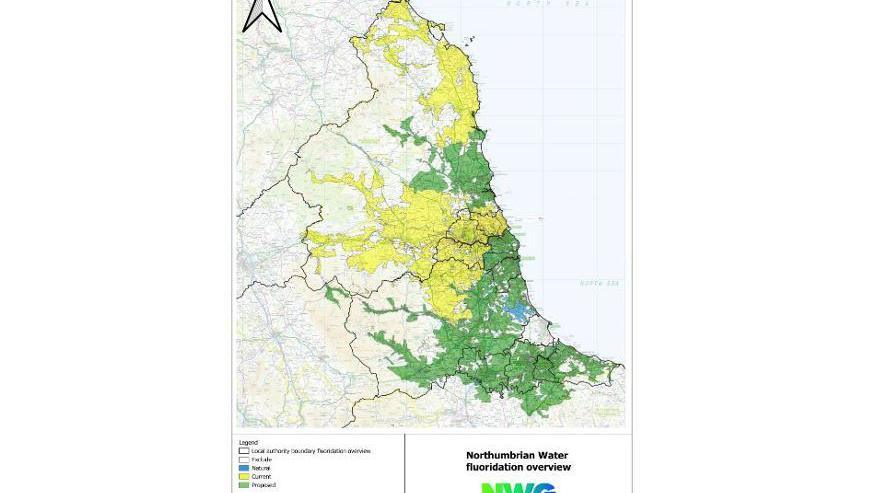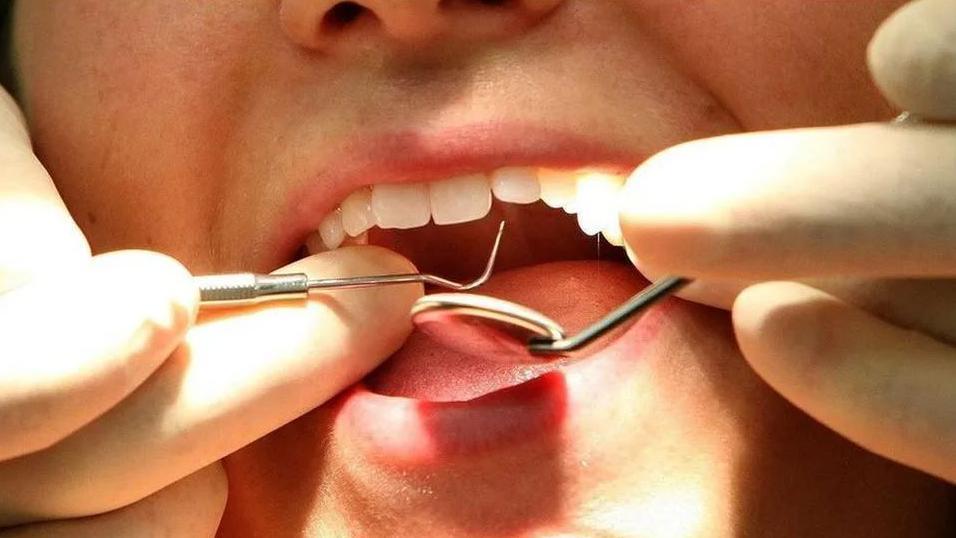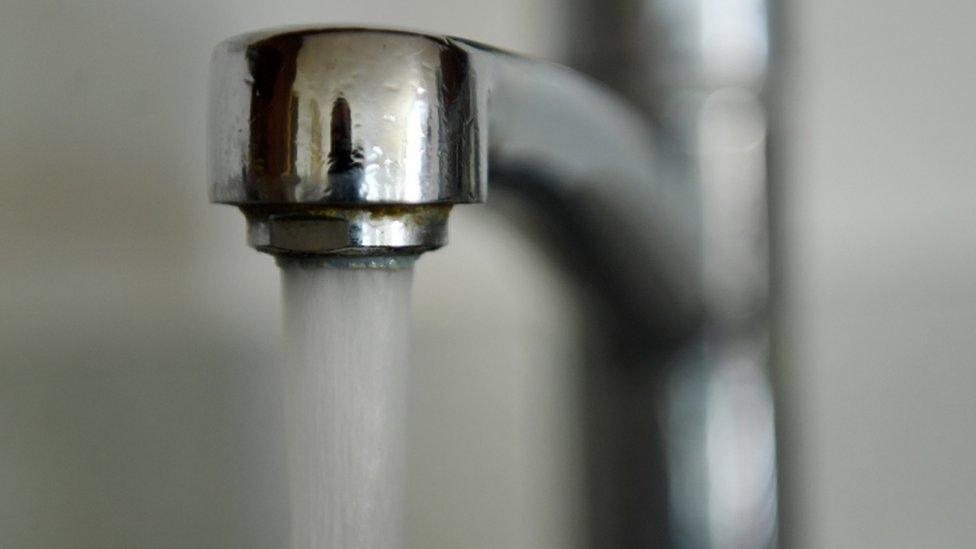Government wants to expand water fluoridation

A consultation is underway on plans to introduce water fluoridation to more areas in the North East
- Published
Plans to expand water fluoridation to 1.6 million more people to prevent tooth decay are to be discussed.
The Department for Health and Social Care (DHSC) wants to introduce fluoridation to more areas of the North East.
The plans are currently out for public consultation and will be discussed by Durham County Council on 13 May, though areas across the whole region will be affected.
Fluoride is a naturally occurring mineral which protects teeth against decay and that has historically been added to water in some areas to provide additional protection for oral health.
Documents submitted to the council's health and wellbeing board, external said 26% of five-year-olds living in non-fluoridated areas in County Durham had suffered tooth decay.
That was 2% higher than those living in areas where fluoride had been added to water, the document said.
The statement also said 120 children under five had to have a tooth removed in hospital due to decay in the year up to March 2023.

The Government said that it would be impractical to provide fluoridated water cost-effectively to some rural areas due to their location
Northumbrian Water has supplied artificially fluoridated water since the late 1960s to Chester le Street, Consett, and Stanley in County Durham, Alnwick, Hexham and Cramlington in Northumberland and parts of North Tyneside, Newcastle and Gateshead.
Now DHSC wants to expand the scheme to Darlington, Durham, Hartlepool, Middlesbrough, Redcar and Cleveland, South Tyneside, Stockton, Sunderland and areas not currently covered in Gateshead, Newcastle, Northumberland and North Tyneside.
The government body said a small number of rural areas could not be covered, as it would not be cost-effective.
They added that for every £1 spent on water fluoridation in the area, it expects to save £13 after five years.
A presentation that will be shown to councillors aims to bust myths about the practice, including that fluoridation is a form of "mass medication".
Documents state: "A medication is typically used to relieve symptoms. Fluoride is a mineral, not a medication. It is proven by decades of research to prevent tooth decay.
"Fluoridation works in addition to fluoride in toothpaste. It is a public health measure endorsed by the four UK chief medical officers."
When the plans were announced earlier this year, Prof Sir Chris Whitty, chief medical officer for England, said: "Water fluoridation can reduce the prevalence of tooth decay and improve dental health equity across the UK.
"It should be seen as a complementary strategy, not a substitute for other effective methods of increasing fluoride use such as tooth brushing."
Durham County Council is expected to make a decision on its response to the consultation before it closes on 17 June.
Follow BBC North East on X (formerly Twitter), external, Facebook, external and Instagram, external. Send your story ideas to northeastandcumbria@bbc.co.uk.
Related topics
More stories from BBC North East and Cumbria
- Published8 March 2024

- Published6 April 2022
